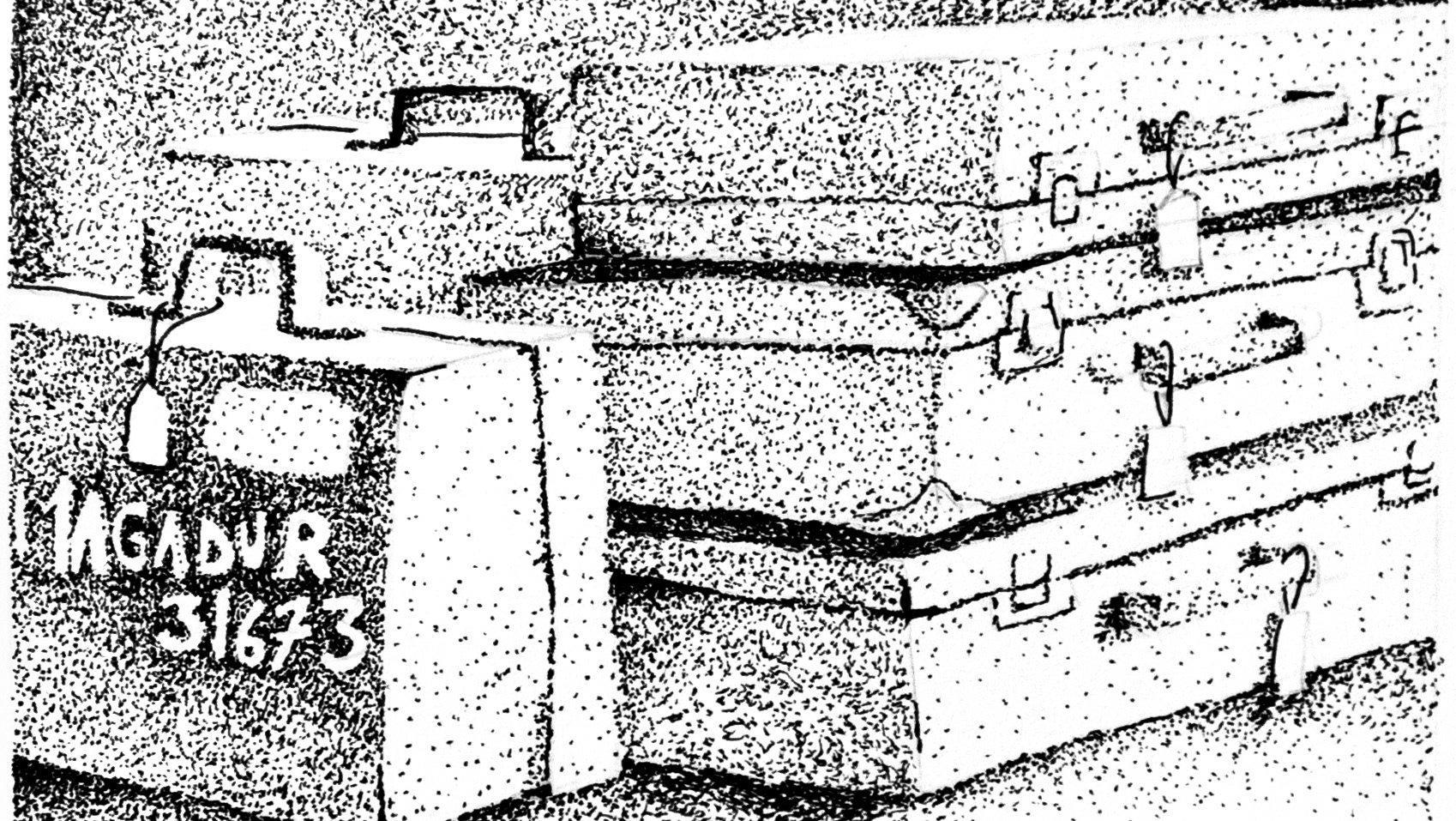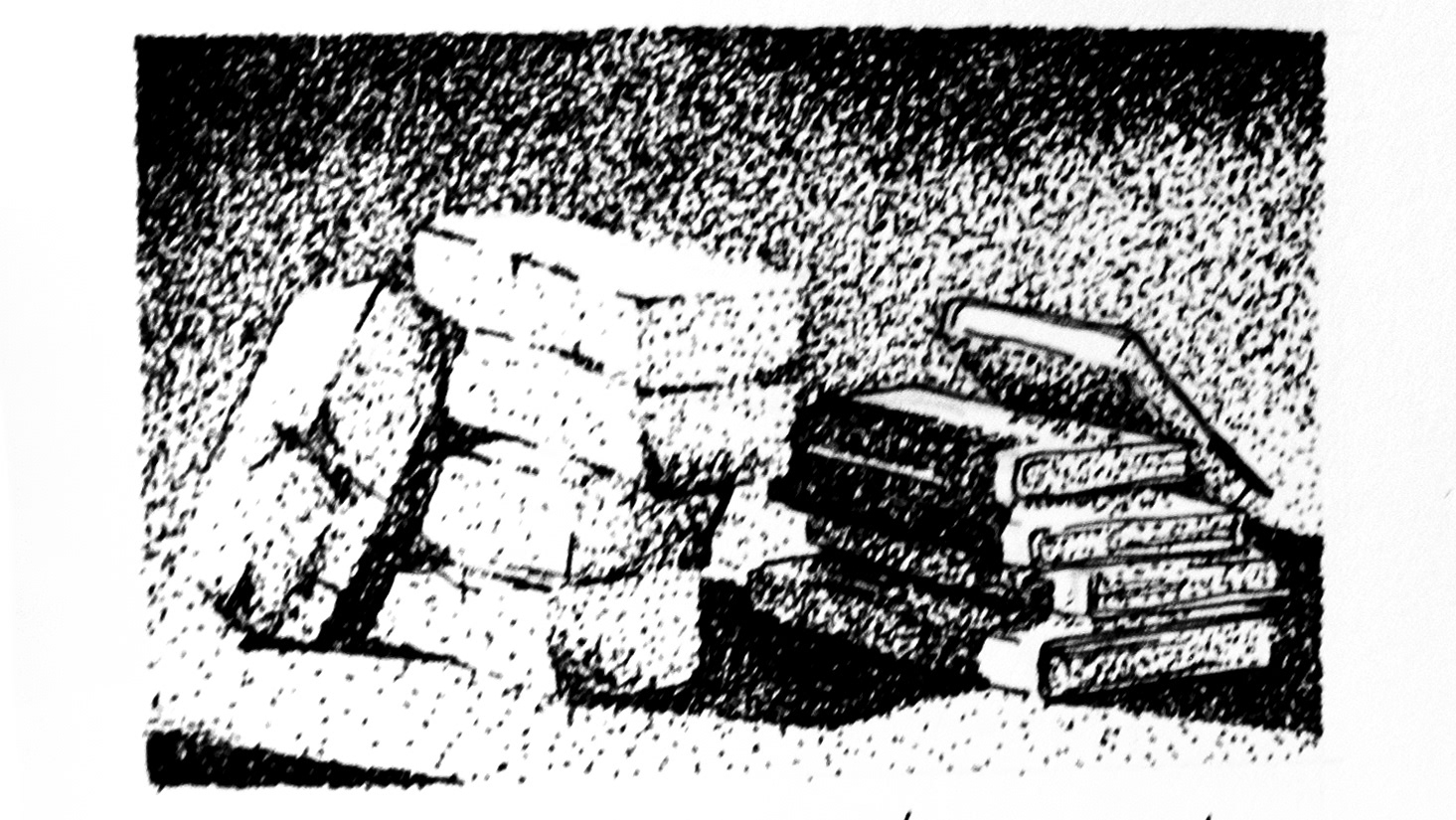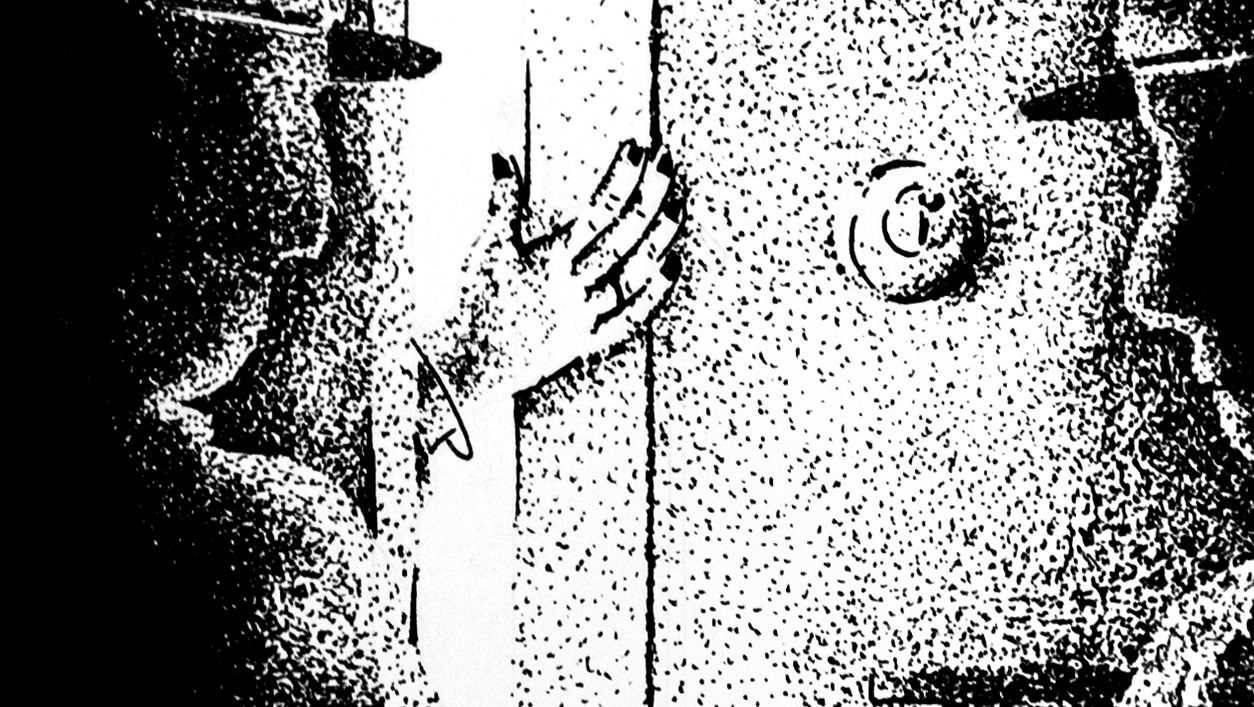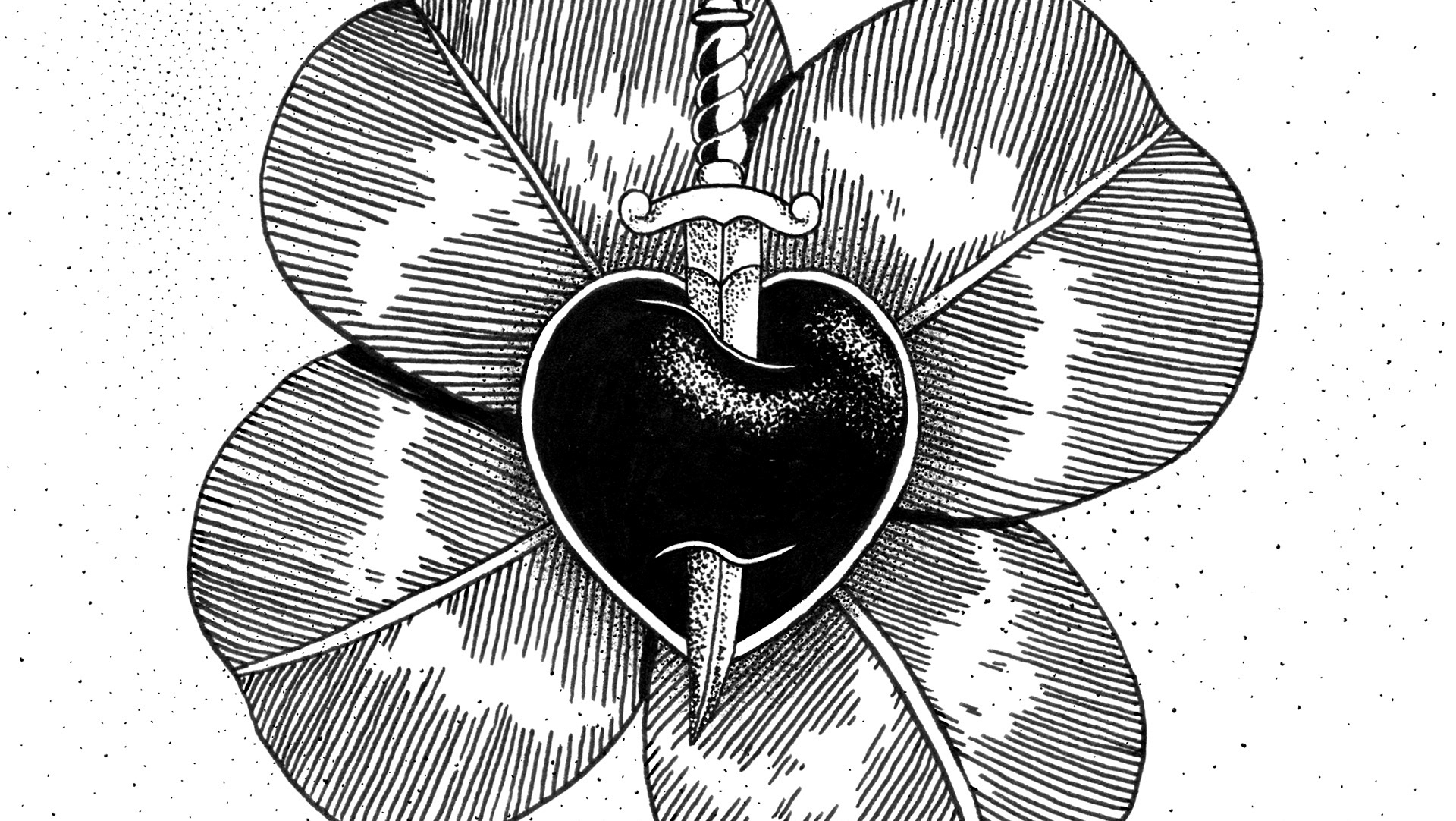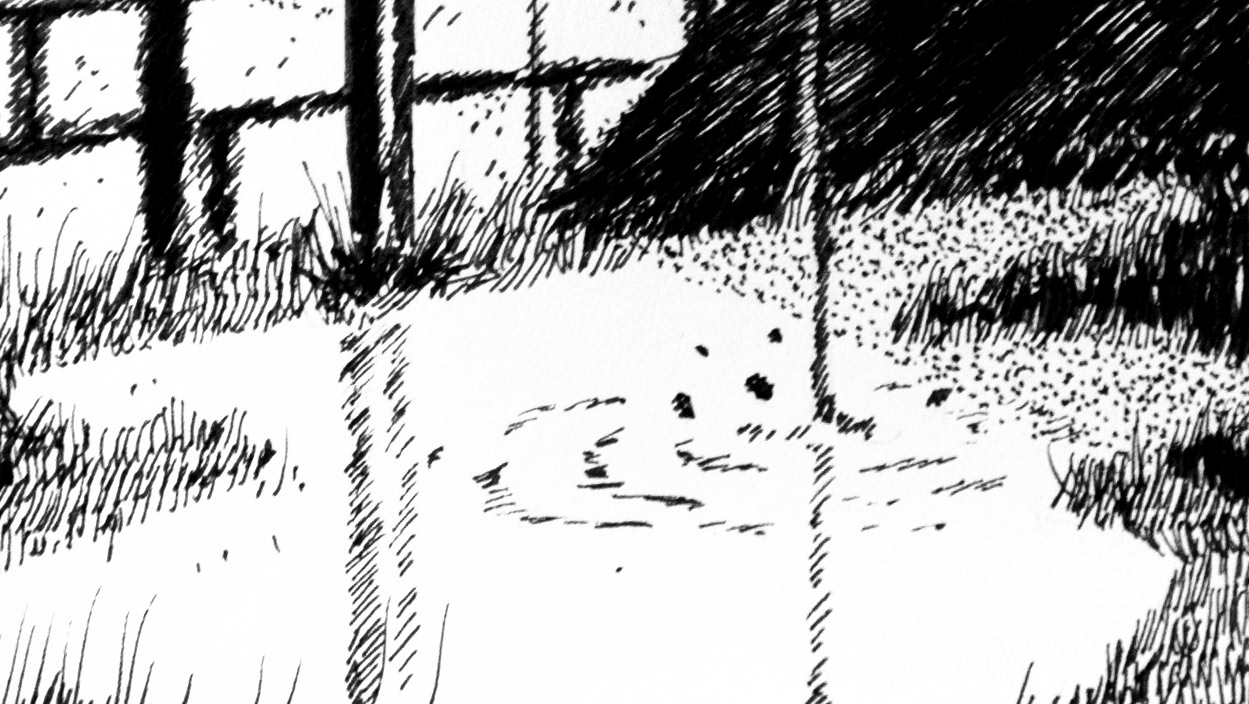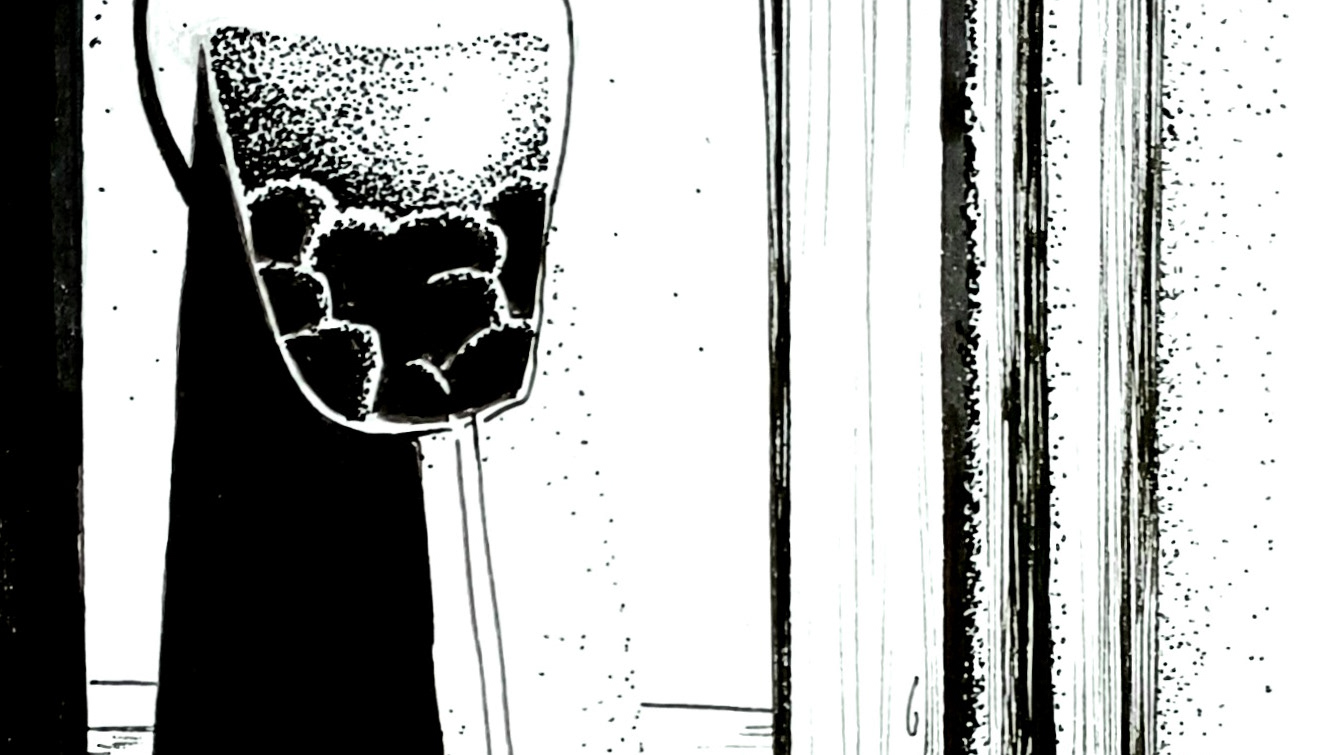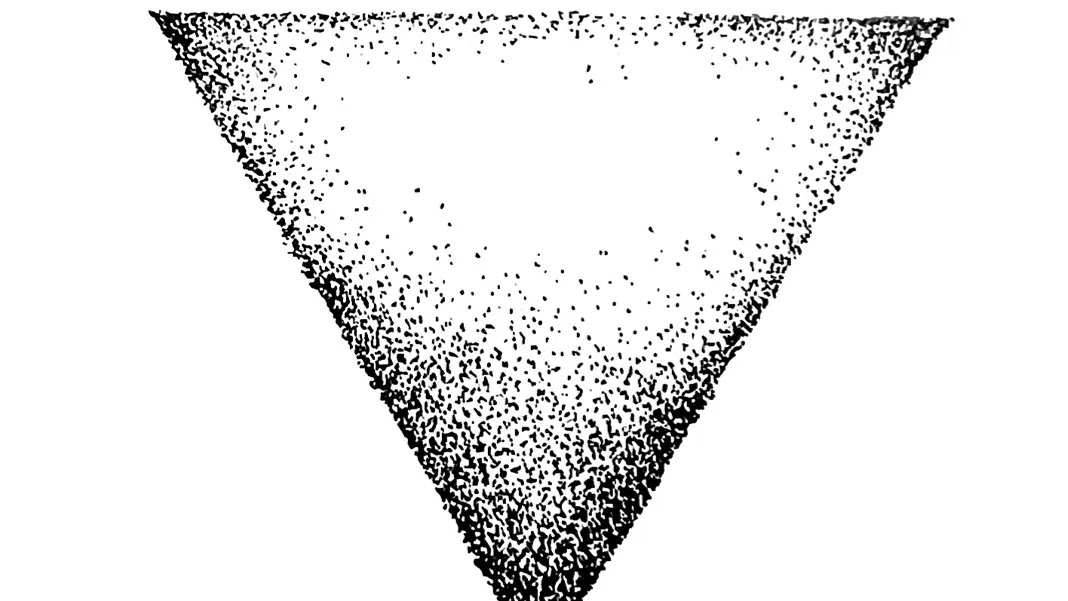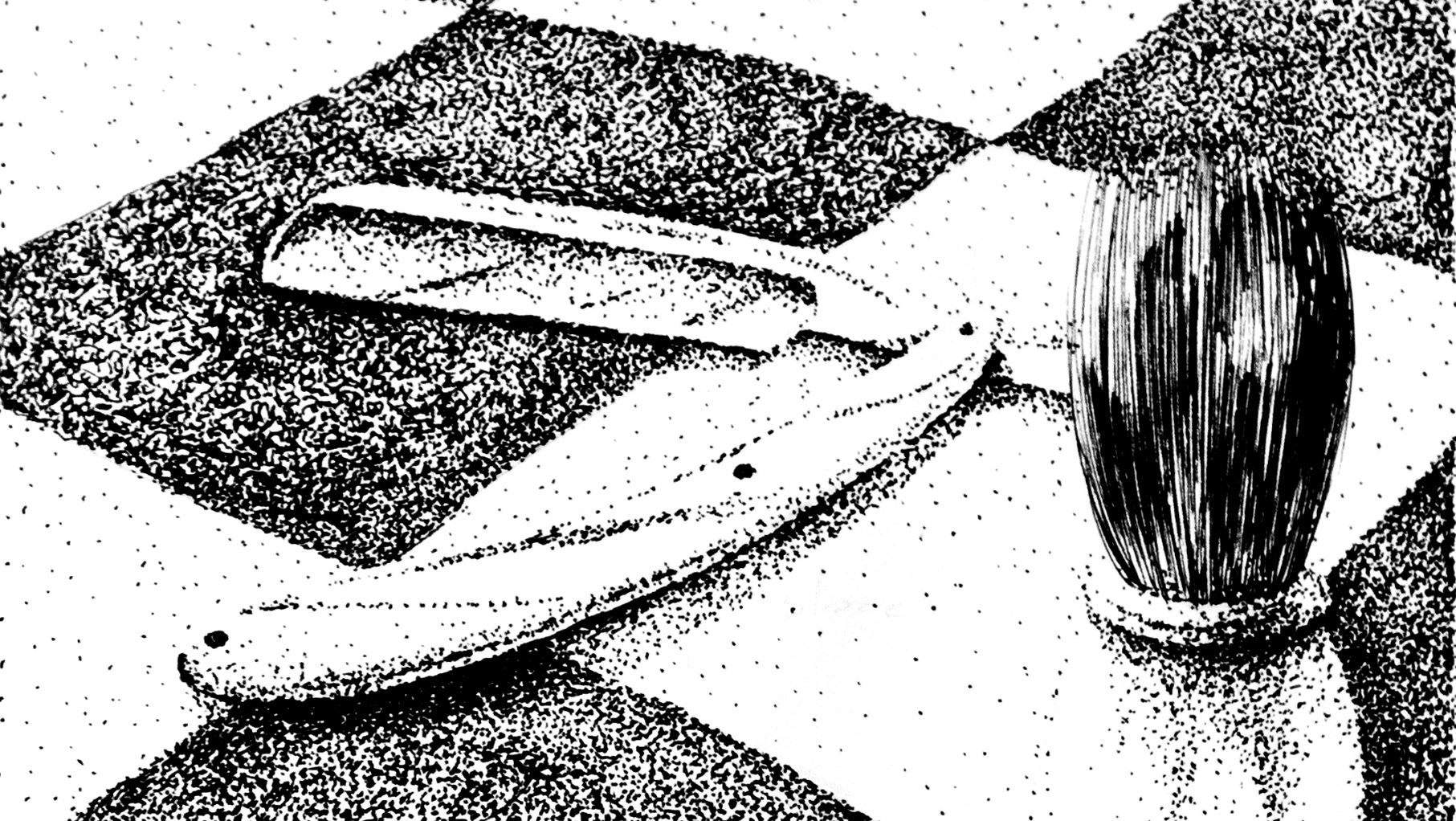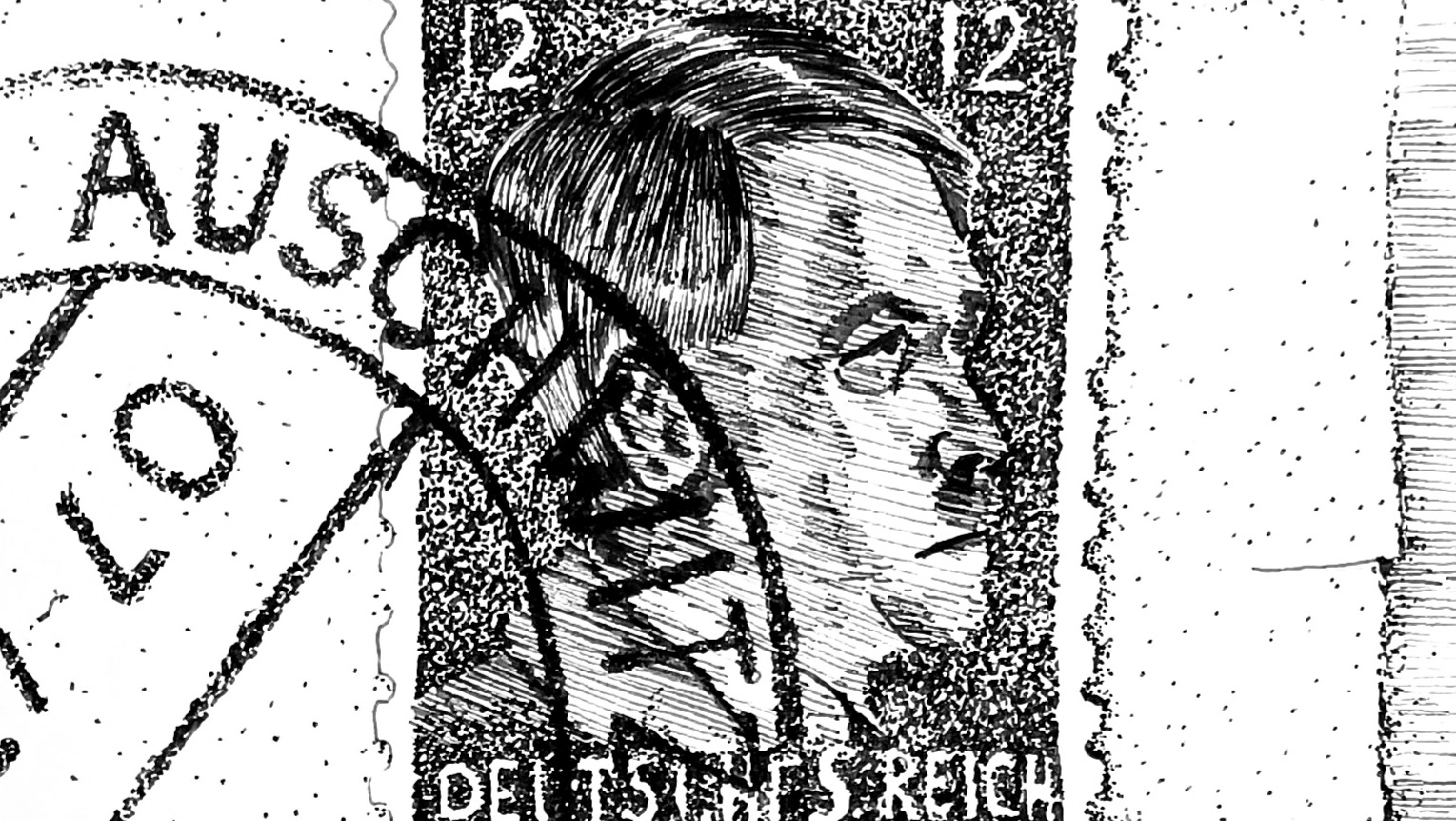Charlotte Delbo, Betty, Mado, Cecile, Gilberte, Poupette, Carmen and Lulu are a very tight group. They do their best to stay with each other, to help each other, they owe their lives to each other. Some of the girls met in Birkenau, some earlier in Romainville, Carmen and Lulu knew each other from even earlier.
Back in the 19th of June 1942, Carmen and Lulu were arrested at the same time. The police didn't know much about them, only the names they gave, Renee Lymber and Lucienne Thevenin.
Wherever they went, Carmen and Lulu never left each other's arms. When they were sick, they went to the Revier together, just in case. They joined Raisko together, they strongly believed their lives depended on them staying together.
In the beginning of 1944, a SS came to Raisko and Some french women left. 9 women were pulled apart, the group of Charlotte and the others, and were told to pack. They were to leave Auschwitz, amongst the first to evacuate the camp.
A very odd trip started for them. First, they were told to wear regular clothes rather than their prisoners outfits. They felt like civilians for a few minutes, the feeling faded quickly. Some of the most violent kapos waved at them, wishing the best. They had been terrible people, and now they were saying goodbye like old friends.
They took an ordinary train, alongside ordinary citizen. They went to Berlin, for the first time in their lives. The feeling was almost eerie, like going on a tour. They considered escaping the guards, but they wouldn't know where to go in Berlin, so they didn't take the opportunity. On the other hand, seeing Berlin partly in ruins made them smile and realise the war was nearing an end. They needed to keep it together for a few more months maybe, maybe less.
They took another train from Berlin and arrived in Ravensbruck, norther than Berlin. It wasn't an extermination camp like Auschwitz-Birkenau, it hadn't been built with the purpose of killing, it was a concentration camp. Their clothes were different, everyone wore regular clothes yet with a cross painted on the back. The rules were different, the 31000 had to learn those, however absurd some may have been. But Ravensbruck was still a place of death, you could still be killed at the Revier, by the guards. You could still starve to death, there were barracks for that purpose.
So the women learnt, stayed together. Carmen and Lulu kept on holding hands. It was a big camp, and the labour was difficult, the 8 women finally decided to stop going to work and hide instead right after the roll calls. They wanted to save their energy, and the labour here was terribly draining, their chances would be higher by hiding, even if they had to repeat it every day.
Today is the 2nd of August 1944, and a group of french women arrive in the camp. Carmen and Lulu come to them, they can't believe their eyes. Those are the rest of the 31000, with Marie-Claude Vaillant Couturier, Yolande Gili, Adelaide Hautval, Louise Magadur, Germaine Pican. The moment is joyful yet short, the guards have a knack for destroying happiness here.
Yolande Gili meets her mother in Ravensbruck, Celeste Pica. They hadn't seen each other for 2 years. This is a difficult time, they have to tell each other tough truths. Yolande needs to tell her that Aurore, her sister, Celeste's daughter, died early in 1943, in Auschwitz. Celeste needs to tell her that her father, Celeste's husband, was executed in France. They both look at each other for a while, and finally part ways. They can't say for now, it will have to wait, or maybe they both understood already.
Carmen and Lulu were watching the scene, they hold hands even harder.
Carmen and Lulu are Jeanne and Lucienne Serre, sisters, the last sisters amongst the 31000, the most secretive of all. Many 31000 were sisters, or mothers and daughters, none survived together, except for Carmen and Lulu. Barely anyone knew they were related, not the police, the guards, the SS. Only a few 31000 knew, including the group of the 8 who first arrived in Ravensbruck. They knew, because Carmen and Lulu trusted them with their lives.
Notes
Thank you for listening to this episode of 31000/45000, the story of 2 trains of french members of the resistance. My name is Matthieu Landour Engel.
This episode is about Carmen and Lulu and Ravensbruck.
This is the first episode regarding the transfer of the 31000 and the 45000 to other places.
I would like to give you more informations regarding Ravensbruck. It was the largest women concentration camp in the german reich, there was also a small men’s camp adjacent to it. The camp was only 50 miles away from the city of Berlin, and around 120000 women and 20000 men were registered. It was a concentration camp, although many women were murdered, either by exhaustion, starvation, or assassination. A gas chamber was built at the end of 1944, in order to kill at a faster rate. As usual, life conditions were even worse for the jewish prisoners, even though, number wise, the camp mostly housed political prisoners. An estimation of 90000 prisoners died in Ravensbruck.
I made a few assumptions regarding Carmen and Lulu. I don't know if they witnessed the scene where Yolande Gili and her mother Celeste Pica met again, they were on the same camp but I really have no way of proving Carmen and Lulu were present.
Carmen and Lulu are indeed the only sisters who both survived among the 31000. There were a few other siblings who were arrested and deported at the same time, as well as mothers and daughters, I will focus on another pair of siblings in another episode, the Alizon sisters.
I had the chance to discuss with Paul Thevenin, the son of Lulu, Lucienne Thevenin, and he told me about his mother, as well as his aunt Carmen. They were fantastic women, with different tempers, yet very close to one another. Their brother, Louis, was deported as well to the Mauthausen camp and survived.
Paul Thevenin told me a beautiful story. He was 2 years old when his mother was arrested and turned 5 years old when he was told they would meet again, as she had just been back from Sweden. In Sweden, the authorities did their best to take care of the prisoners, treat them, they even gave them a little bit of per diem. Most women would buy food, or clothes, Lucienne only bought Swedish sweets, so much in fact that she came back with one luggage full of sweets.The day she came back, she brought back that luggage, just for him, and that memory stayed with Paul Thevenin all his life. Meeting his mother is forever linked to a luggage filled with Swedish sweets.
My sources for this story mostly come from the book le convoi du 24 janvier by Charlotte Delbo, the Maitron website, and the website holocaust memorial museum.
Thank you very much for your attention, next episode will be about Rene Besse and the meanings behind 2 different bombings.

